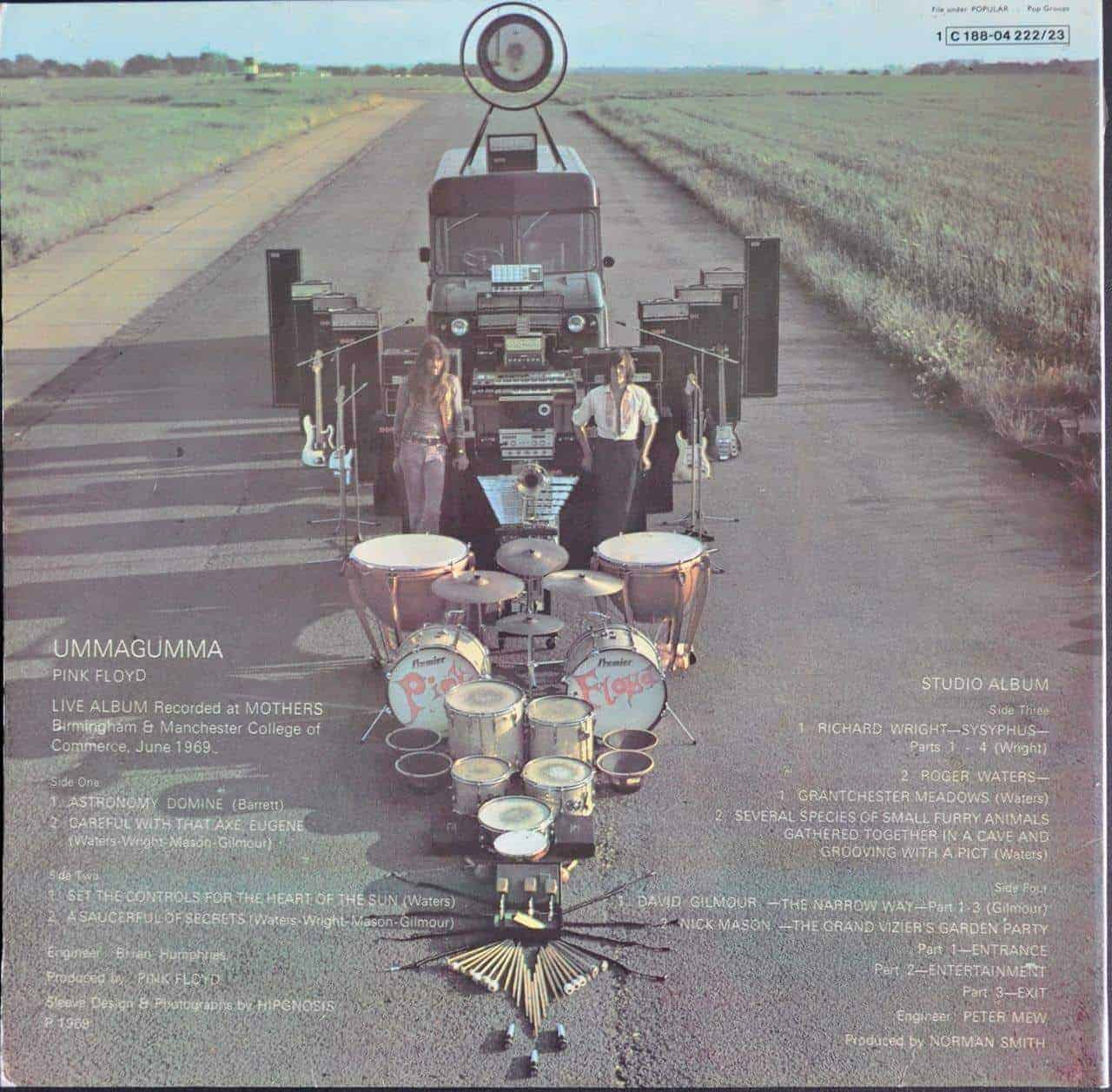

This cookie is set by GDPR Cookie Consent plugin. The cookie is used to store the user consent for the cookies in the category "Other. The cookies is used to store the user consent for the cookies in the category "Necessary". The cookie is set by GDPR cookie consent to record the user consent for the cookies in the category "Functional". The cookie is used to store the user consent for the cookies in the category "Analytics". These cookies ensure basic functionalities and security features of the website, anonymously.

Necessary cookies are absolutely essential for the website to function properly. In retrospect it’s obvious just how terrible this idea was… In a move that completely overestimated his and his bandmates’ compositional skills, Rick Wright suggested that they make a record where each member produces half an LP side entirely on their own, without help from his bandmates. If there ever was a record that encapsulates all the negative aspects about late-60s experimentalism, it must be the second LP of Ummagumma. They draw out “Set the Controls for the Heart of the Sun” nicely, toying with that understated tension as they race toward their destination, but of these four tracks, only “Careful With That Axe, Eugene” sounds truly definitive, although that has the benefit of being a previously unrecorded live staple. The live material represents a typical setlist from the late ’60s and therefore bears some historical curiosity. It’s a very interesting approach because through this meditative process, each member gets to discover their own potential and expand their creativity. And then unionizing all of the different pieces to compose the album. Deciding to isolate themselves from one another to comprise their own material.

Pink Floyd‘s approach to Ummagumma is a very unique one.
PINK FLOYD UMMAGUMMA ASTRONOMY DOMINE TV
The intro was several years theme song of the TV show ARD focal point today is a variation of the original is used.A musical approach that expresses an enthusiasm for experimentation and lengthy instrumental passages. In addition, he presented it to a few concerts of his on- to - Iceland tour. This version is also on the compilation album A Nice Pair, while the original version on the compilation album Echoes: The Best of Pink Floyd appeared.Īstronomy Domine was not played live from mid-1971 until 1994 and was again included in the set list: When The Division Bell tour, it was played at the opening of each concert.Īt a concert in Miami a version was recorded, which appeared as a B- side of the single Take it Back.Īnother recording, which dates from a concert in London, appeared on the double live album Pulse.ĭavid Gilmour played the song at a session at Abbey Road Studios and released this version on the bonus DVD of On to Iceland. In the central part of these longer version Wright plays a supported organ solo, which leads into the last verse. The use of effects units here takes Pink Floyd's later musical development anticipated as it is about on the studio LP of the double album Ummagumma (1969) and later to listen to The Dark Side of the Moon (1973).Īstronomy Domine can be heard in a live version on the album Ummagumma, where it is sung by David Gilmour and Richard Wright. The use of a Binson - Hall device also generates a psychedelic mood.

The song ends with Syd Barrett's song, which describes the landing of the spaceship, and with Wright's Arabic -sounding improvisation on the organ.Īstronomy Domine has an unusual harmonic structure, in which only major chords are strung together: E - It - G - A - E6 - F - E6 - G. In the background you can hear Richard Wright's Farfisa organ, this is a repeating bass motif of Roger Waters. In the studio recording can be heard from 0:19 min short beeps, the sequence of which is reminiscent of a Morse code.Ī few seconds later, Nick Mason begins with the bass drum, followed by Barrett electric guitar, inspired the piece Mars, the Bringer of War from Holst 's orchestral suite The Planets. In the background sounds Barretts electric guitar, whose volume increases slowly, as they would come closer. The song begins with the voice of the manager Peter Jenner, who reads the names of some stars through a megaphone. The song is sung by Syd Barrett and keyboardist Richard Wright. It was written by their singer and guitarist Syd Barrett and opens her debut album The Piper at the Gates of Dawn. Astronomy Domine is a psychedelic rock song by British group Pink Floyd.


 0 kommentar(er)
0 kommentar(er)
